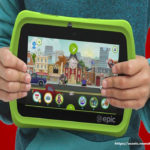We’ve all noticed the “Hooked on Phonics” infomercials on the tv in addition to a vast array of other infomercials promising to educate the young mind by following a specific regime. Even so, in the event, you don’t have the money (in today’s economy, who does?) you could wonder exactly where to turn and to whom.
Educating your youngsters starts just about the time an infant is born. A parent talks and sings to a youngster, and most importantly reads to them day-to-day. Though one particular may not recognize the effect of these straightforward, meaningful gestures, the kid comes to know the world by way of the constant interactions of caregiver and child.
There are a vast array of educational activities that a parent can do using a kid at a very young age to help within the young reader’s improvement. Parents can practice word families (words broken into chunks which include the “at” family which contains cat, fat, bat, hat, mat, sat), higher frequency words, books heard on the net, and onset and rime (words split into two components, for instance, s-ing, r-ing, d-ing), as a start off.
You’ll find also several valuable educational internet sites which are parent friendly to help assist in the development of the young reader:
1. is an internet site solely devoted to teaching preschool-1st grade ways to read. It contains leveled guided reading online books that aid the kid in sounding out words determined by the context clues the stories include, focusing on prediction, repetitive text, amazing illustrations that assistance the young reader decode, and engaging the kid in higher frequency words.
2. is yet another web-site that interested parents and teachers alike use to inspire the love for reading in children. You can find numerous activities in which to meet the needs of young readers.
Genuine and genuine experiences are valuable since they are meaningful towards the youngster and mimic the adult planet. Spending time with your kids is priceless, and a lot of what our kids find out will depend on the meaningful experiences you make collectively. Making a grocery list, writing a story together, labeling things about the residence, playing “I spy” with website words are only a handful of examples of what parents can do to move their youngster within a path that fosters Day at a Time.











